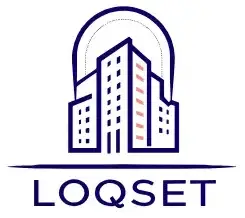
Saving Money on Utilities: Smart Tips for Montreal Rental Properties
Winter in Montreal is a sight to behold, but it also brings a rise in energy consumption. For tenants, finding ways to reduce electricity use can lead to significant savings. For landlords, investing in energy efficiency can make rental units more attractive and reduce tenant turnover. Here are some practical strategies to help both parties save on utilities.
Electricity-Saving Tips
Small adjustments in daily habits can lead to noticeable savings on energy bills:
- Optimize Your Thermostat: Lowering the temperature by just one degree Celsius can reduce annual heating costs by 5% to 7%.
- Use Appliances
Efficiently: Run dishwashers only when full and wash clothes in cold water to minimize energy waste.
- Reduce Phantom Power Consumption: Unplug electronics like TVs, computers, and chargers when not in use, especially before going on vacation.
- Turn Off Lights and Electronics: Ensure lights, TVs, and amplifiers are turned off when leaving a room or after use.
Hydro-Québec’s Flex D Rate
For tenants and landlords looking to save even more, Hydro-Québec offers the Flex D rate program. This dynamic pricing structure encourages electricity use outside of peak hours, which can lead to lower overall costs.
How It Works:
- Customers reduce or shift electricity use during peak demand events, which occur between 6–9 AM and 4–8 PM on weekdays from December 1 to March 31.
- These events happen up to twice a day, with at least 7 hours between them.
- By avoiding high-consumption activities (e.g., laundry, heating, cooking) during peak times, users can take advantage of lower rates during off-peak hours.
Equalized Payments Plan (EPP)
Unexpectedly high electricity bills during winter can be stressful, especially for new tenants unfamiliar with seasonal fluctuations. Hydro-Québec’s Equalized Payments Plan (EPP) helps to mitigate this by averaging electricity costs over 12 months to establish a consistent monthly payment. This approach eliminates winter bill spikes, making budgeting easier for tenants and reducing the risk of missed payments.
Energy-Efficient Unit Improvements for Landlords
Landlords can take simple steps to improve energy efficiency in rental units, making them more attractive to tenants and reducing overall operating costs:
Switch to LED Lighting:
Improve Insulation: Older buildings, in particular, can benefit from upgraded insulation. If walls are being opened for repairs, it’s an excellent opportunity to add insulation and improve heat retention.
Seal Drafts: Weather stripping and caulking around windows and doors help prevent heat loss and improve overall comfort.
Conclusion
Energy costs can influence a tenant’s decision when choosing a rental, and many landlords overlook this factor. By showing a commitment to sustainability and helping tenants reduce their electricity bills, landlords can foster better relationships, reduce turnover, and create more attractive rental properties. Implementing these strategies is a win-win for both landlords and tenants—saving money while promoting eco-friendly living.

 Efficiently:
Efficiently:






